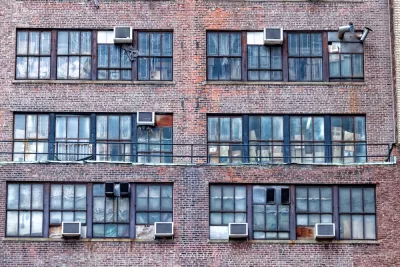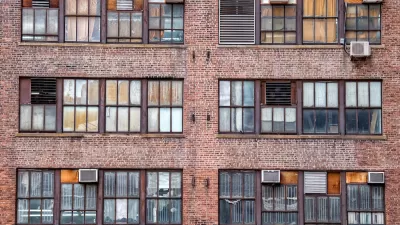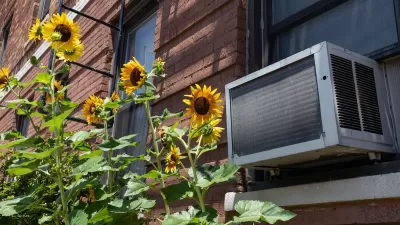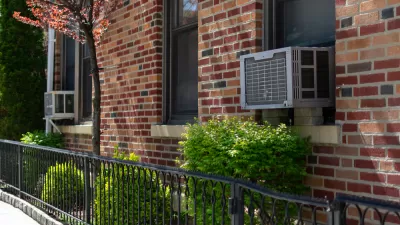With temperatures reaching record highs in cities around the country, local officials are implementing measures to ensure vulnerable residents have adequate cooling.

After three elderly women died, likely from heat-related causes, in a Chicago apartment building, a city alderwoman introduced updates to the city’s existing heating and cooling ordinance that will ensure cooling as an essential right. As Rebecca Redelmeier writes in Next City, “The new rules, which the city council approved last month and have already taken effect, mandate that all large condominiums and senior living buildings have designated cooling areas where cooling must be turned on when the outside heat index exceeds 80 degrees.”
With current temperatures in Chicago hitting the highest numbers in a decade, the ordinance comes at a crucial time for residents. “While cities across the country have long had laws about winter heat requirements, getting officials on board with the reality and urgency of cooling needs has been an uphill battle. The stakes are only climbing higher as climate change causes more frequent heat waves and hotter summers.”
Cooling can also be unaffordable for many households. “Cooling’s potentially high cost is not addressed in the new legislation, leaving some residents unable to afford to cool their homes. Though public programs exist to help low-income families cover utility costs, most don’t include cooling cost assistance.” With temperatures steadily rising year after year, advocates say the city should do more to protect people from extreme heat. According to Mark Wolfe, executive director of the National Energy Assistance Directors’ Association, “this summer is a wake-up call. It’s what the future’s going to look like.”
FULL STORY: Inside Chicago’s Effort to Protect Tenants’ Right to Cool Air

Alabama: Trump Terminates Settlements for Black Communities Harmed By Raw Sewage
Trump deemed the landmark civil rights agreement “illegal DEI and environmental justice policy.”

Study: Maui’s Plan to Convert Vacation Rentals to Long-Term Housing Could Cause Nearly $1 Billion Economic Loss
The plan would reduce visitor accommodation by 25% resulting in 1,900 jobs lost.

Why Should We Subsidize Public Transportation?
Many public transit agencies face financial stress due to rising costs, declining fare revenue, and declining subsidies. Transit advocates must provide a strong business case for increasing public transit funding.

Paris Bike Boom Leads to Steep Drop in Air Pollution
The French city’s air quality has improved dramatically in the past 20 years, coinciding with a growth in cycling.

Why Housing Costs More to Build in California Than in Texas
Hard costs like labor and materials combined with ‘soft’ costs such as permitting make building in the San Francisco Bay Area almost three times as costly as in Texas cities.

San Diego County Sees a Rise in Urban Coyotes
San Diego County experiences a rise in urban coyotes, as sightings become prevalent throughout its urban neighbourhoods and surrounding areas.
Urban Design for Planners 1: Software Tools
This six-course series explores essential urban design concepts using open source software and equips planners with the tools they need to participate fully in the urban design process.
Planning for Universal Design
Learn the tools for implementing Universal Design in planning regulations.
Smith Gee Studio
Alamo Area Metropolitan Planning Organization
City of Santa Clarita
Institute for Housing and Urban Development Studies (IHS)
City of Grandview
Harvard GSD Executive Education
Toledo-Lucas County Plan Commissions
Salt Lake City
NYU Wagner Graduate School of Public Service





























